In the penultimate post of our series showing you how to date your old photographs by using physical clues to determine the process used to create it, I’m going to show you how to spot a cabinet card.
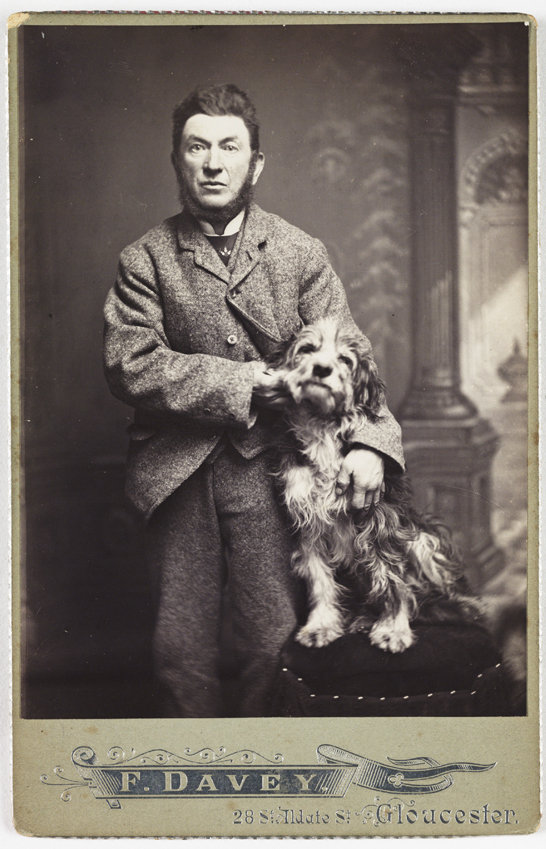
About cabinet cards
Cabinet cards are photographs mounted on stiff pieces of cardboard. They were introduced in the 1860s and gradually superseded the smaller carte de visite format.
The front of the card is usually printed or embossed with the photographer’s details, and the back of the cabinet card is often printed with elaborate designs.
The popularity of the cabinet card waned around the turn of the century, particularly after the introduction of the photographic postcard, but they were still being produced right until the First World War.
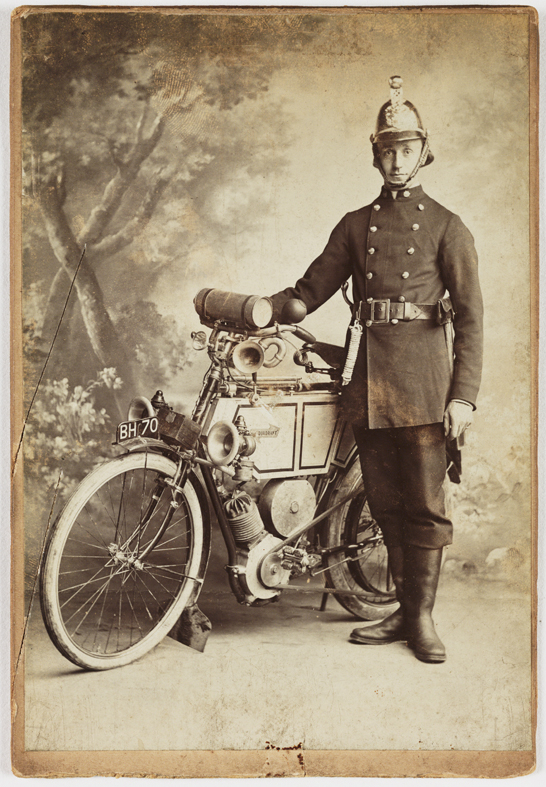
Use these clues to identify a cabinet card
Size
The cabinet card was basically a larger version of the carte de visite. Paper prints measuring about 5.5 x 4 inches were pasted to standard sized cardboard mounts measuring 6.5 x 4.25 inches.
Mount
Cabinet card mounts are usually thicker than those of cartes de visite.
Edges
By the 1880s, cabinet card mounts sometimes had bevelled edges, and were often finished in gold or silver.
Colour
The colour of the cardboard mount can also help date the photograph. Cream mounts were always popular, but bolder, dark colours like black, dark brown, green or burgundy began to appear in the 1880s and 1890s.
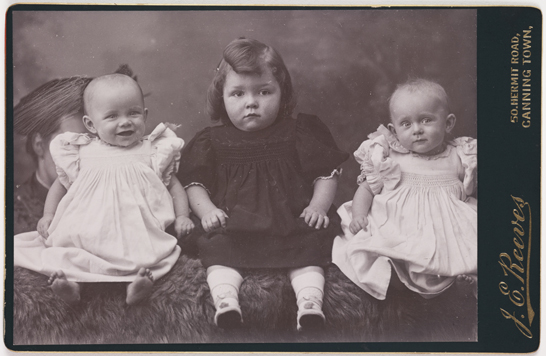
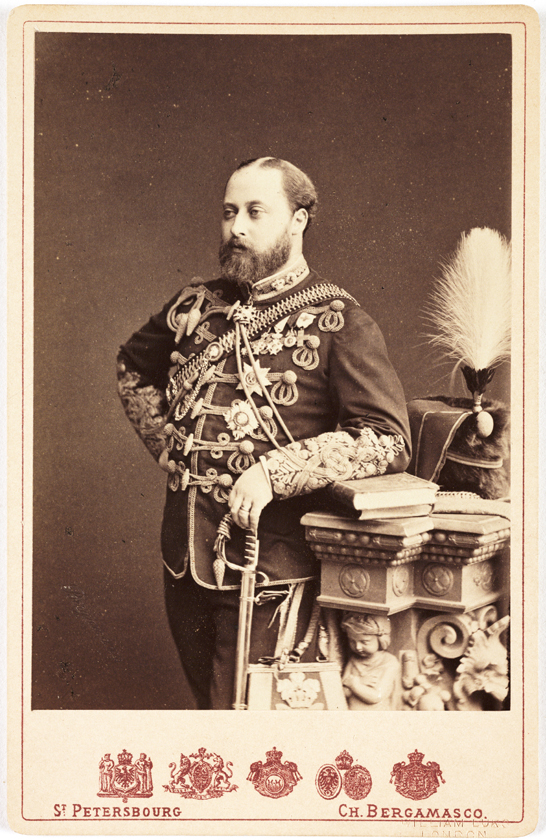
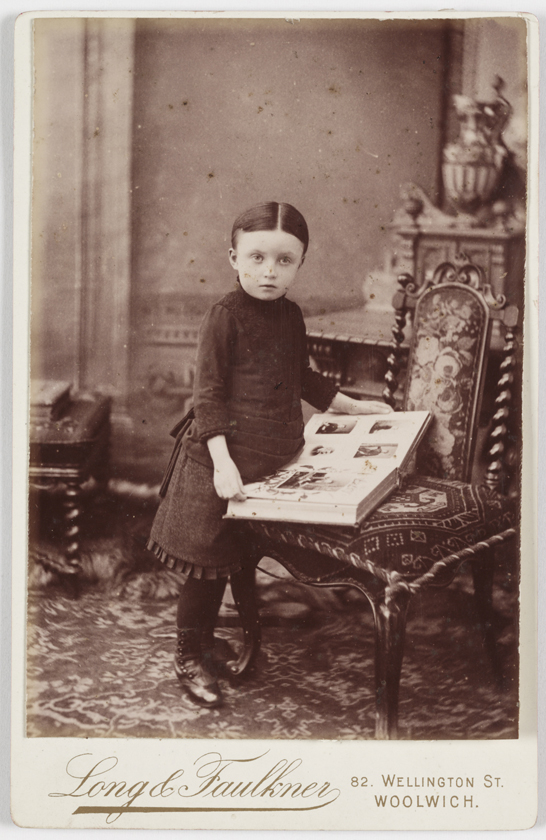
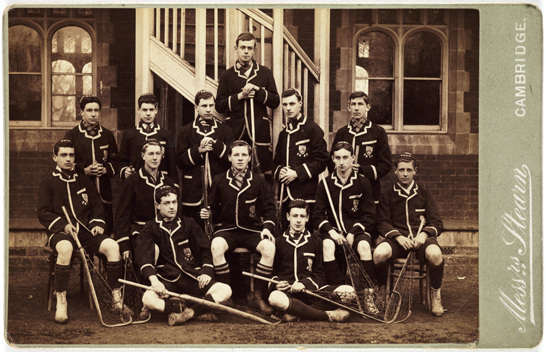
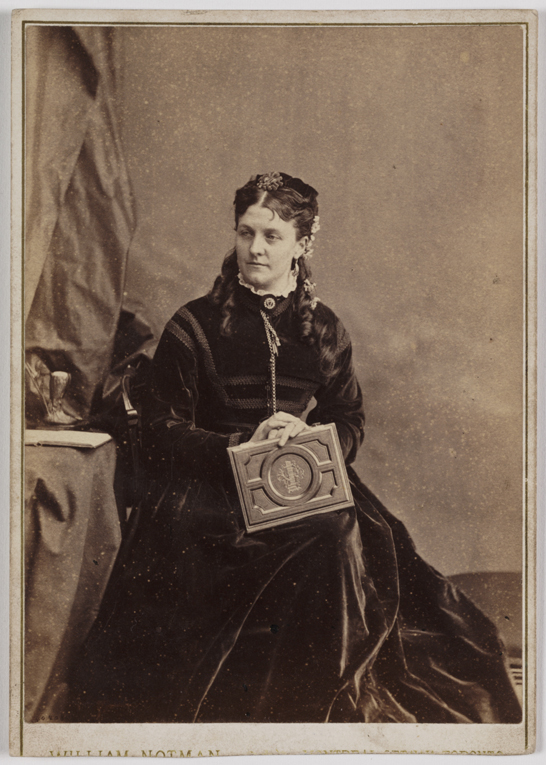
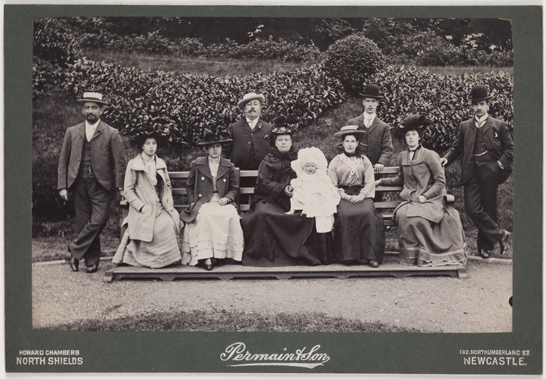
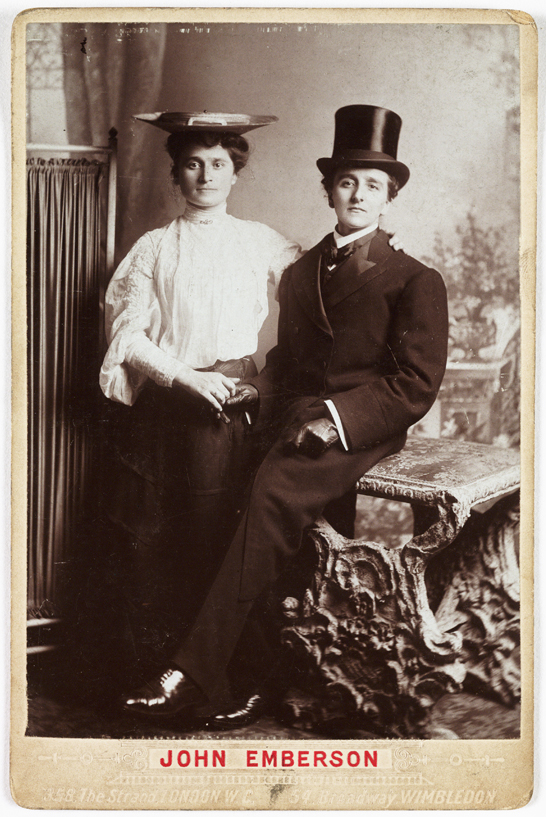
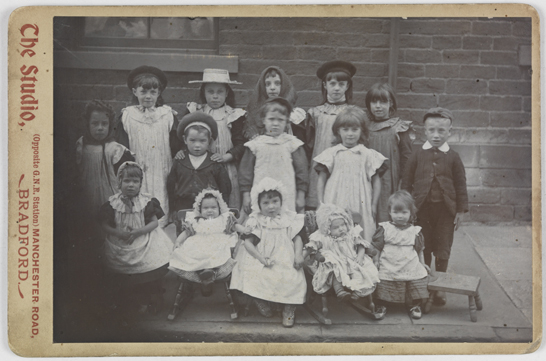
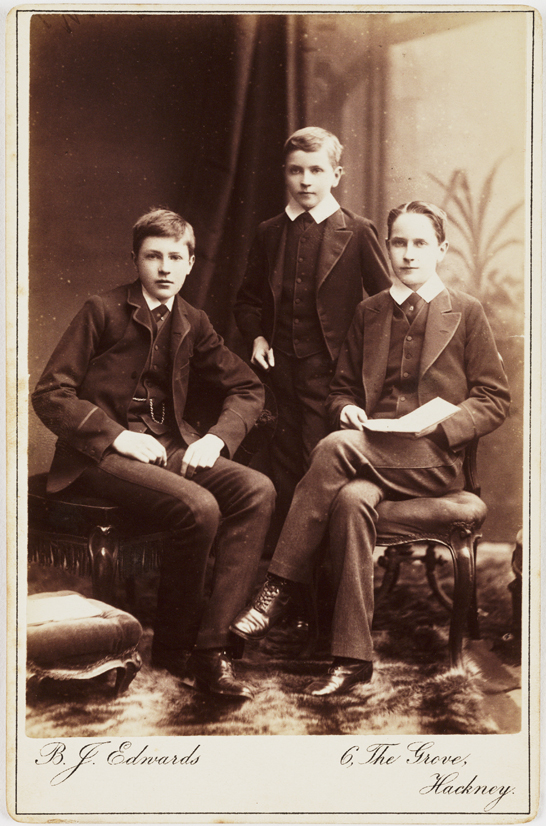
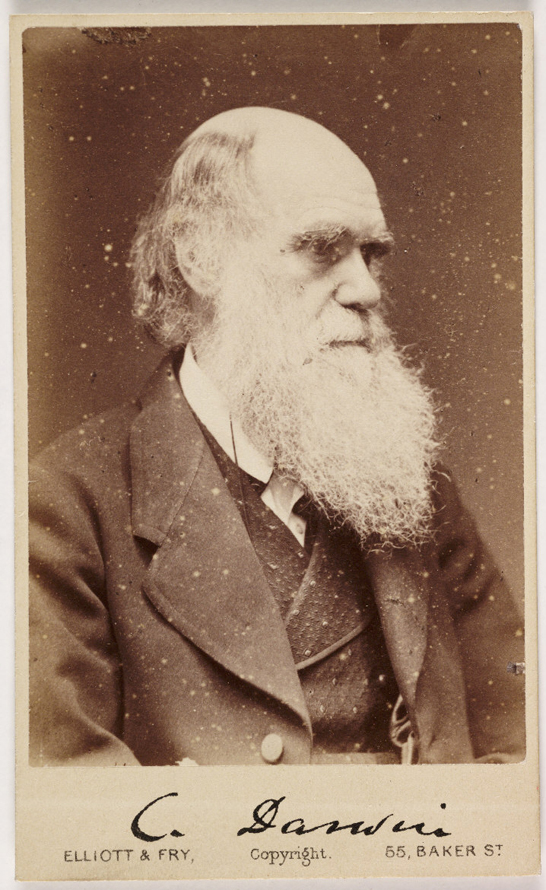
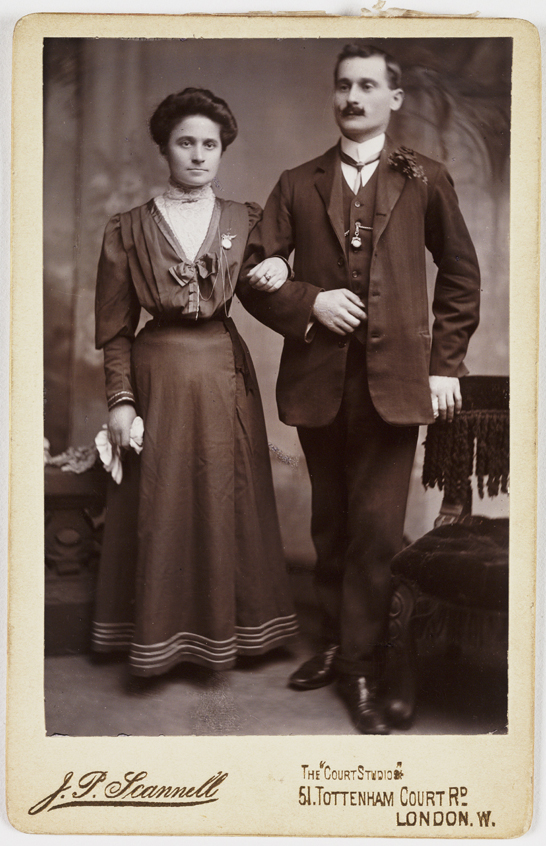
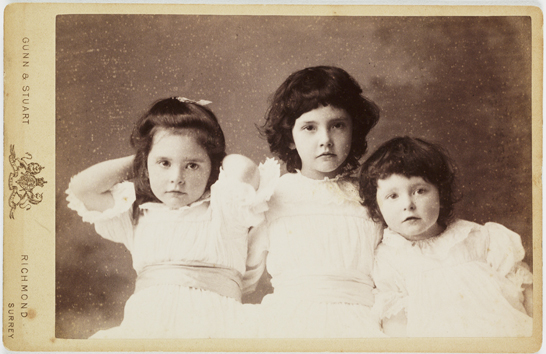
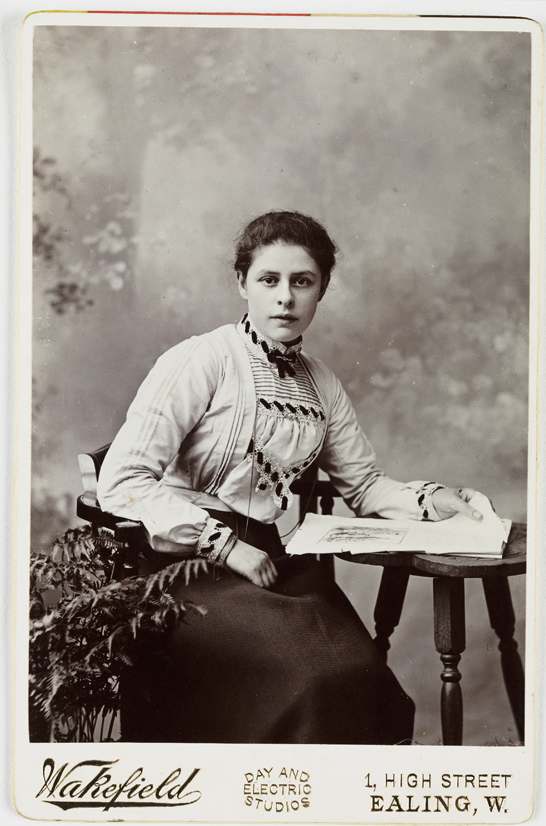
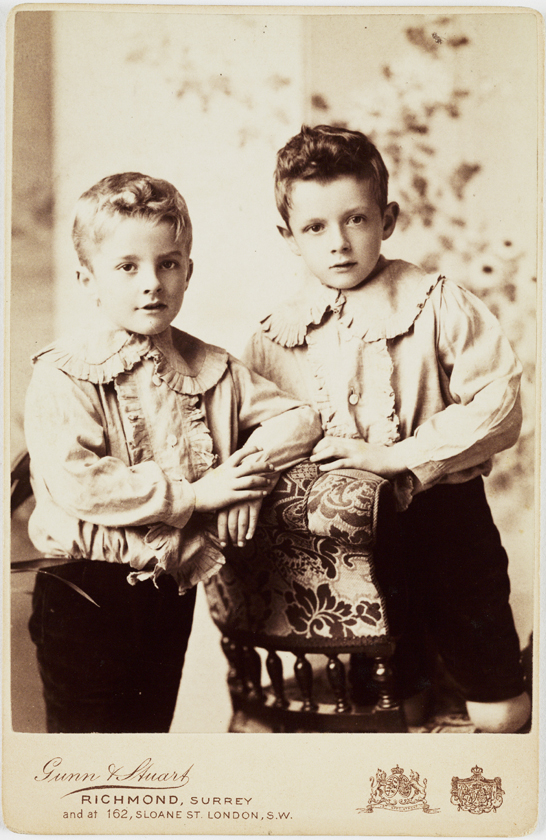
More in the series
- How to spot a daguerreotype (1840s–1850s)
- How to spot a collodion positive/ambrotype (early 1850s–1880s)
- How to spot a ferrotype/tintype (1855–1940s)
- How to spot a carte de visite (late 1850s–c.1910)
- How to spot a postcard (1900–1950s)
- How to date Victorian photographs
- How to date photographs by fashion
- Researching your photographer ancestors
I have no problem identifying “cabinet cards” now or generally dating them. However, my ancestors did not provide the names of people in the photos. I only have the identity of the photography shop. Is there any way to find out who is in the photos through the photography shop? Is anyone keeping track of what happened to a photo shop’s records after it closed? Can you please advise.
Records are longgg gone. You can look at the location of the photograph and try to figure out what family lived in that area and guess by info on poll records/census sheets.
Would you be willing to sell some of your beautiful cabinet cards , I am up to trade as well
Dennis
Cheers
I have a bunch of cabinet card photos and some photos know as daguerreotype if your interested I can send pictures of the photos
I would love to buy some of your cabinet photos.
I a few cabinet cards I would like to sell
Hey Dennis I have stack of cabinet cards if you’re interested? I would like to sell them
I have a cabinet card from Warren’s in Boston of Benjamin the Beast Butler a union general and a politician from that area that I would sell
I own a cabinet card showing Ralph Waldo Emerson with the name of the photographer/printer “Warren” on the front. Can you kindly tell me anything about the name Warren, the card’s date, and what the card may be worth, please?
Hello i have major military general cabinet cards and more!!!
I have been passed down a very old book with the cabinet portraits in im looking to get it checked out as I do not know how much it is worth if anyone can help
I live in the U.S
I have a very old black and white photo which i believe are my great grandparents. I think the photo was taken in Massachusetts. I would love to know the time period. How can i find out?
Some clues to estimate the time period are: 1.) The clothing. If you are unfamiliar with period clothing, you can search “period clothing” (say, mid to late Victorian era for example) and that should return some good sources of information as well as images, which you can compare with your photo. 2.) The “color” of the photo – is it sepia toned or more grey toned (black and white)? If it is sepia, the photo is older, if more of a true black and white, it is nearer to the turn of the century.
I am looking for a card of a relative. He was a Tallman in the circus and I have seen his card before. Louis Moilanen.
Greetings!
We are a small greeting card company, in your own words, LLC, producing greeting cards celebrating the LGBTQ community through photographs of affectionate men, women and children.
Our cards are hand-crafted by rural, HIV+ men and women in a cottage industry, offering them dignity and income.
We are always seeking interesting photographs. Might you have a listing or catalog of any such photographs for sale or use?
Thank you,
http://www.inyourownwords.ME
I used to collect cabinet cards and have a collection of 150. After reading a little about cabinet cards, it is apparent that they date from ca. 1980 to ca. 1900. some are in fine condition, some are good and some are not-so-good. Is there a recognition software that allows one to obtain information about the people depicted? I tried using Google as a tool in determining the provenance of a military group posed around an American flag and the Google software came up with dozens of photos of groups w/ or without flags. I had hoped that a well-scanned image would be helpful to the Google software but apparently artificial intelligence only goes so far. If my cabinet cards depict the rich and famous, it’s a possibility that they would be worth more than a buck apiece. What do you think?
Junge Mark,
facial recognition software has limited value, especially if the photo is distressed/deteriorated, or the person depicted has facial hair, is wearing a hat, is in 3/4 profile. There is a cottage industry in self-avowed facial recognition savants who, for a healthy fee, will tell you that the photo of your great-great-uncle is actually Billy the Kid. Two tricks they use. First, rather than comparing the anonymous photo with an archive of, say, 10,000 images that includes the known Billy tintype, they compare it with just the known Billy tintype. Second, if the comparison level is, say, 85% or 70%, they declare it a match. An Amazon Rekognition executive recently said that he recommends to law enforcement that they use a a 99% threshold comparison, and even then if they get, say, one or more hits, it’s a clue, not a match. A clue deserving further investigation. In 2017 I wrote an essay on the uses and misuses of facial recognition technology: “Adventures in Wonderland: Identifying Old West Photos,” https://wildwesthistory.org/assets/wwhajournal1809-adventures-in-wonderland.pdf
What is the best way to archive and store cabinet cards? I can’t seem to find plastic sleeves that have their specific dimensions.
I have a hand coloured cabinet card photo of my maternal grandmother but it’s broken into four or five pieces how can I get it repaired ?
Hi all i have over 200 cabinet cards that are in books i found them in a skip how do i know if they are worth anything please
Mark Pawsey, “that are in books”? — you mean they were in photo albums, not that you’ve seen the same cabinet cards published in books, correct? Anyway, run-of-the-mill cabinet cards are not worth a great deal, but certain views are more collectible than others. And obviously, those that depict historical luminaries are very collectible. For a general sense of the market, look up whatever cabinet cards are presently up on eBay. And check out the offerings at auction houses. Dan
PS In re my favorite topic, the misuse of facial recognition software vis a viz antique photographs, the Wall Street Journal published a good article this past week, “Wyatt Earp or Ringo Starr? Facial Recognition Meets Its Match With Old West Photos,” by Parmy Olson, here, https://www.wsj.com/articles/facial-recognition-software-old-west-outlaw-photos-11606922350
Hi I have a cabinet photo of H.S. Keller who can help me tell who this is or where can I send a copy of photo to be viewed and valued?
How can I tell how old picture is my grandmother was born in 1900 the picture is with pencils a black and white it said it by Rossini The painting looks like it’s a village in Italy how can I tell if it’s worth any money
As a historic costume specialist, I noticed that a few of your dates were a bit off – particularly noticeable with ladies fashion, less so for men and sometimes harder to pinpoint with children – i.e. – the child with the photo album is more likely to be from the 1880’s though possibly as late as 1890. The seated lady holding a book in the long, dark velvet dress with the full skirt with no obvious support or noticeable petticoat underneath – I would date to about 1871. You would not see a full skirt like that in 1880 when dresses were quite form-fitting all the way through the skirt and had practically or no bustle. The hairstyle with the long sausage-like curls is another clue. Dating a picture based on the fashion is generally the best bet if it is possible.
I have what I believe to be a cabinet photo card. Names on the back are identified and I have researched going back to the time period 1880. The cardstock is heavy with rounded corners with a black outline. The photo has square corners. I’ve done the research on the people/names in the photo and they do date back to that era.
My problem is that there is no name of the photographer on it. How can I be sure that this is not a replica? It certainly does look like an original.
I have just inherited a photo album and I would like to know if the cabinet cards I have are my relatives or are they just models.
I LOVE old and historical photographs in all formats including daguerreotypes, salted paper prints up to 20th Century real photo postcards.
As a dealer and collector I have and have had some wonders.
In cabinet cards, I once had and sold a Buffalo Bill signed cabinet card taken by Matthew Brady when BB was 26 years old in New York City circa 1872.
I still have and treasure a circa 1875 cabinet card by Thomas Houseworth & Co of America’s Emperor, Norton I in full uniform.
I could go on but won’t. I’m listening to Bill Evans.
I have several cabinet cards, around 1880-1900. Rather large ones about 10X12″, although I haven’t measured them personally. I believe they are of “Women of Ill Repute.” I would like to sell them. I have no idea how much they are worth. Still researching them.
I would suggest you set up an account with Ebay as a Seller and set them up for bidding. You may be able to get top dollar that way. Look around Ebay at other Sellers and see what similar photos are selling for. Good luck!
I have found 5 cabinet photographs that have an odd size. They are 4″ x 8 1/4″. Four different studios from Chicago and New York. Do these have a name? I assume that they are rare.
Our family bought a homestead farm in Wisconsin in the 1960s. There were boxes of all sorts of postcards plus an original 1st year Sears Roebuck catalogue in pristine condition. I believe my brother still has these items. Does anyone know if that Sears Roebuck catalogue is valuable?
I have cards with ladies in hats and their names printed and mounted on cardboard. But the back of the cardboard has typed writing that seems like stories . Are these cabinet cards? The measurements of the card is 3.5 by 5.5 inches and the Frederickson Co name is on them .